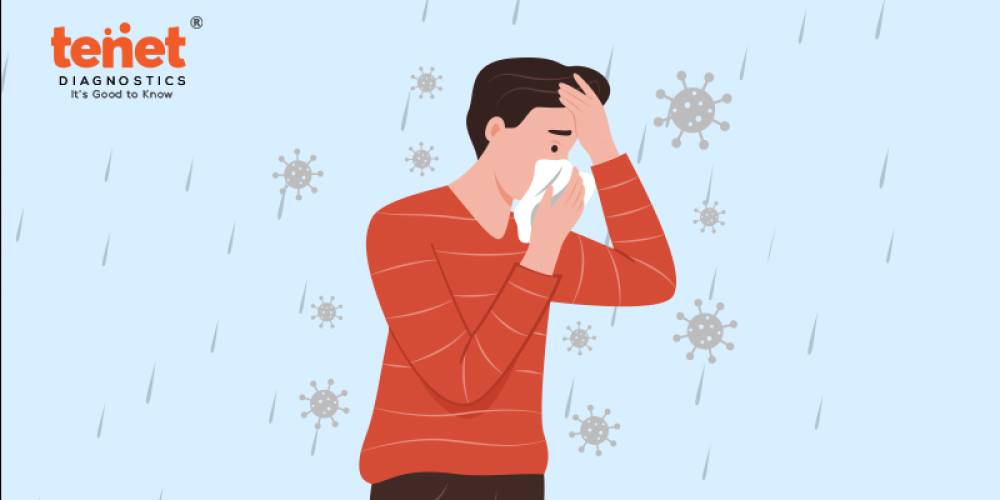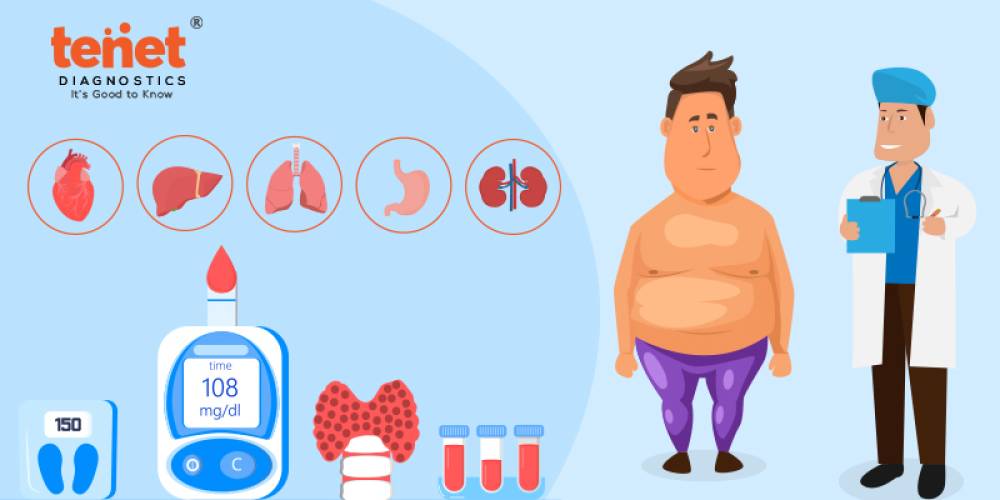The monsoon season generally brings with it a host of allergies that can make day to day life pretty difficult. The increasing counts of pollen, molds, and dust mites make this season very tough on people who are prone to allergies.
Allergies in monsoon can easily disrupt your daily routine and general health, from itchy eyes and a runny nose to more severe respiratory problems. The secret to controlling it is in understanding the sources causing allergies.
If you can detect the triggers and take preventive steps, the chances of monsoon seasonal allergies arising are significantly diminished. From over-the-counter drugs to medical interventions, different kinds of treatments can help you sail through this allergy-prone season in comfort.
In this article, we will dig into more details on the symptoms, causes, ways of prevention, and even what to do in the case of monsoon allergies. Let us learn how to fight off these allergies during monsoon and enjoy the monsoons completely.
Monsoon Allergy Symptoms
Monsoon allergies are basically caused due to exposure to allergens such as pollen, mold, and dust mites that thrive in this humid environment. Generally, the symptoms to look out for include:
- Runny nose and congestion
- Itchy, irritated eyes
- Sneezing
- Coughing
- Tiredness
- Skin rashes
In extreme conditions, allergies may lead to shortness of breath or even asthma attacks.
What Causes Monsoon Allergies
Several things lead to the allergies during the monsoon rain. These include:
- Pollen: The flowers, grass, and weeds release pollen in the environment as they blossom
- Mold: moist and warm conditions are perfect for molds to grow on the indoor and outdoor
- Dust mites: the creatures love damp conditions and can cause allergic reactions
Tips for Monsoon Allergy Prevention
Following are some preventive steps on how to avoid monsoon allergies and reduce your symptoms. These include:
- Cleanliness: Frequently dust and vacuum the home to reduce the allergen levels in the house.
- Air purifiers: Air purifiers with HEPA filters can filter out the allergens.
- Shower after being outdoors: Clean your body and hair to remove pollen with other allergens.
- Change clothes after outdoors: Alternately, this will prevent the transfer of allergens into your home.
- Close windows and doors: Close windows and doors during high pollen counts to keep allergens outside
- Choose Wisely: Cotton being a breathable fabric, it lets you breathe through your skin and minimize allergen accumulation
- Monitor Pollen Counts: Check local pollen counts in the nearby forecast and outdoor activities to plan accordingly
Health Care During Monsoon
In case of serious or ongoing symptoms of allergy, contact a healthcare provider. Treatment can be advised accordingly by the healthcare provider. Antihistamines and decongestants from over the counter can be used to get relief, but a physician's advice is important in case of chronic symptoms of the allergy.
Monsoon Allergy Treatment
Different ways are available to treat the allergy from monsoon season. These include:
- Medications over the counter: Antihistamines and decongestants can reduce the symptoms noticed.
- Medications prescribed by a doctor: For severe allergies that may cause discomfort in performing daily routine activities, the doctor will prescribe powerful drugs like cortic.
- Allergen immunotherapy: Allergy shots : These can be effective to reduce your sensitivity to an allergy over a period.
Allergy Diagnosis in Monsoon Hyderabad
In case, you doubt that you are suffering from allergies, the best person to seek advice is an allergist in Hyderabad. They will conduct tests to identify the allergy-inducing substances and suggest treatments accordingly.
When to See a Doctor for Allergies in Monsoon:
- Your allergies happen to be so strong and hamper your day-to-day life.
- You face trouble in breathing or wheezing.
- Over-the-counter medications fail to give you relief.
- You develop a skin rash or other unusual symptoms.
Now that you know their causes and how to manage them proactively, you can enjoy the monsoon minus the misery; still, every patient requires personalized consultation and treatment under a healthcare professional.
Natural Remedies and Creating an Allergy-Friendly Environment
While OTC medications are magical for most of the populace, for others, the monsoon sparks the beginning of exploring natural ways to address their monsoon allergies. Here you go:
- Nasal irrigation: Flush out allergens in your nose with a saline solution to help reduce congestion.
- Honey: Intake of local honey helps relieve localization allergies. Scientific evidence is however weak.
- Quercetin: This is a natural anti-oxidant with anti-inflammatory effects, which could help reduce the symptoms of allergies.
- Vitamin C: Vitamin C is well known for its immune-boosting properties, and its battling effects against allergy symptoms are bound to be effective.
- Probiotics: A good gut will serve for good immune power. Take some probiotics in your diet.
- Air purifiers: HEPA filters will help to get rid of inhaled allergens at home.
How To Create an Allergy-Friendly Home Environment?
Apart from the foregoing remedies, maintenance of a good and clean home environment is of utmost importance, and a few tricks can be done to keep it clean from allergens, such as the following:
- Regular cleaning: Vacuum, dusting, and mopping on a regular basis will clean up the allergens.
- Wash bedding frequently: Change bed linens routinely using hot water to kill the dust mites
- Shower before bed: All the allergens on your body transfer to the bed; thus clean all the allergens on your body before going to bed.
- Manage household humidifier: A dehumidifier can be effective in reducing mold growth.
- Hypoallergenic bedding material: The material of the bedding used should be less able to stir up allergies.
But remember, while these have some relieving properties, they may not be effective for everybody. If your allergies are a major nuisance in the daily life routine, take advice from an allergist for professional recommendations and medical treatment.
Incorporating these natural ways to enhance your health with professional advice can make you better prepared to keep your monsoon allergies at bay.
Final Words
While monsoon allergies might definitely impact your life very negatively when not taken care of or properly managed, you can still enjoy this season with enough ease. Right from being aware of the triggers to taking precautions and receiving suitable medical treatments, you can very well bring an end to the misery of your symptoms.
While natural remedies offer relief, more serious allergic cases may require proper medical treatment. You should consult an allergist to make a personal treatment plan. Proper medical guidance and preventive measures will help you handle and relish the monsoon season all over again.
Frequently Asked Questions
1. What are the most common allergies during the monsoon season?
Mold, dust mites, and pollen are the main causes of allergies in the monsoon season.
2. How can I manage asthma during the monsoon?
To be on inhaler, i.e. use prescribed inhaler properly. Stay away from smoke and dust. Keep your indoors as clean as possible. For individual management plan, visit the doctor .
3. When should I see a doctor for monsoon allergies?
Seek medical attention right away if your symptoms are severe, if your symptoms are persistent or are affecting your quality of life, or if you have shortness of breath.
4. What are the best home remedies for monsoon allergies?
Nasal irrigation, honey can be used, though evidence is limited for this. Using quercetin, vitamin C, and probiotics may also be helpful.
5. What role does diet play in preventing monsoon allergies?
So long as the diet is balanced and contains foods rich in antioxidants and anti-inflammatory components, it will support immune health overall and, in turn, could possibly bring about a decrease in the symptoms of allergies.






